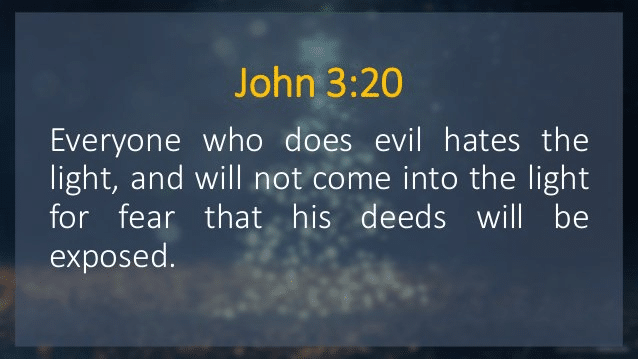John 3:19-20 contains another antithetical teaching from John, in that if someone loves the darkness, the one will, by default, hate the Light. There is no mixing of the two; in order to have one, the other has to be eliminated. And it follows that whatever one hates, that is what one stays away from. Notice the next part of v.20—the hatred of the Light leads to not coming to the Light and then in the final part of v.20, John gives the intended purpose of this aversion to the Light. It literally reads—so that his deeds won’t be exposed or brought to light.
This verse pulls back the curtain, behind which contains the reasoning of the natural mind: “If I come to Christ, that means I will have to admit what he says about me is true—that I am a hopeless sinner destined for eternal judgment apart from his sacrifice. And if I admit that, I can no longer claim to have my own goodness and think that I’m a good enough person for God. In turn, Christ’s teaching of God’s holy standards would expose me as an evil person. That’s a problem because I’ve lived my entire life thinking I’m good enough by comparing myself to others, so it seems too risky and too demoralizing to admit I’m a depraved sinner and be exposed for being self-righteous to the extent that I’d have to give up trusting in myself and trust in Christ alone.”
Thus, the desire to avoid exposure produces a hatred and a repulsion to the light, which is mankind’s natural aversion to Christ.

